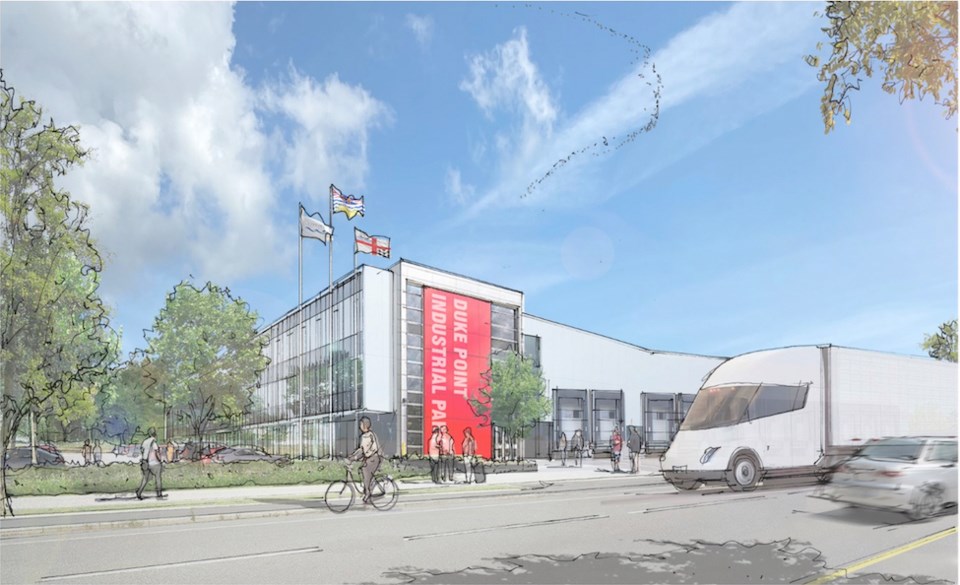
Developers invest in rental construction downtown as new industrial land is unlocked
The City of Nanaimo is in a development boom with a full pipeline from new downtown developments to master-planned communities.
“We’re experiencing a lot of growth right now,” said Bill Corsan, director of corporate and business development at City of Nanaimo.
“It’s a really exciting time because there’s been a lot of projects that have been talked about over the years, and now they’re actually coming to fruition.”
One of the catalysts for activity in Nanaimo was the Hullo passenger ferry, which has been “talked about for over a decade,” said Corsan. While residents have the option to access BC Ferries at Duke Point, he said Hullo will provide Vancouver and Nanaimo residents with more travel options.
“The timing couldn’t have been better with the pandemic and the advent of work from home … it’s actually quicker than taking the West Coast Express from Maple Ridge or Mission [to Vancouver],” he said.
Telus and Omicron Architecture Engineering Construction Ltd. have partnered on a $70-million development in Nanaimo’s Old City Quarter to deliver 197 units of rental housing across two six-storey buildings totaling 164,000 square feet.
“Suddenly we’re seeing this investment coming in there and having what’s going to probably be 500 people living there is great,” Corsan said, adding that just a block down there is another development in the works for 163 rental units in a six-storey apartment building by site owner 340 Campbell Holdings Ltd.
Corsan said city incentives and available land have made the city attractive to developers.
In addition, Nanaimo has a good quality of life and affordability that works to attract potential residents, according to Georgia Desjardins, director of development at Seacliff Properties, known for master-planned communities across the Island.
“Our downtown core, the land is pre-zoned. So, [developers] have been able to roll in and pick up sites and don’t have to go through a rezoning process. They do a development permit and building permit and they’re on their way,” Corsan said.
While new developments are popping up in the downtown core, Seacliff is working on a master-planned community at the south end of the city that will potentially put Nanaimo on the map as an industrial hub.
The approximately 294-hectare community, called Sandstone, is set to provide up to 2,200 new residential units. Seacliff is also “contemplating” over 3 million feet of potential industrial space to go along with it, said Desjardins.
The project is currently in the rezoning process with city council voting in favour of a zoning bylaw to permit residential, industrial and mixed-use development in four areas in November.
“We think the property is particularly well located being at the junction of the Trans-Canada Highway and the Duke Point Highway. It has extremely convenient access via both land and sea, and it’ll further grow and support the city’s aspirations as a key transportation and distribution hub for Vancouver Island,” she said, adding that there is also proximity to the port.
Corsan added that this will offer an opportunity for Nanaimo to become a warehouse and logistics hub for the area, in addition to offering a strategic advantage as the city grows.
“Whether it’s a standalone, one-off building site or a large-scale master-planned community like ours, at the end of the day, each and every one of those developers are adding new growth, new opportunities and making significant investments into the city of Nanaimo, which I think is only going to help continue to grow that city and create more of a vibrant hub,” said Desjardins.



